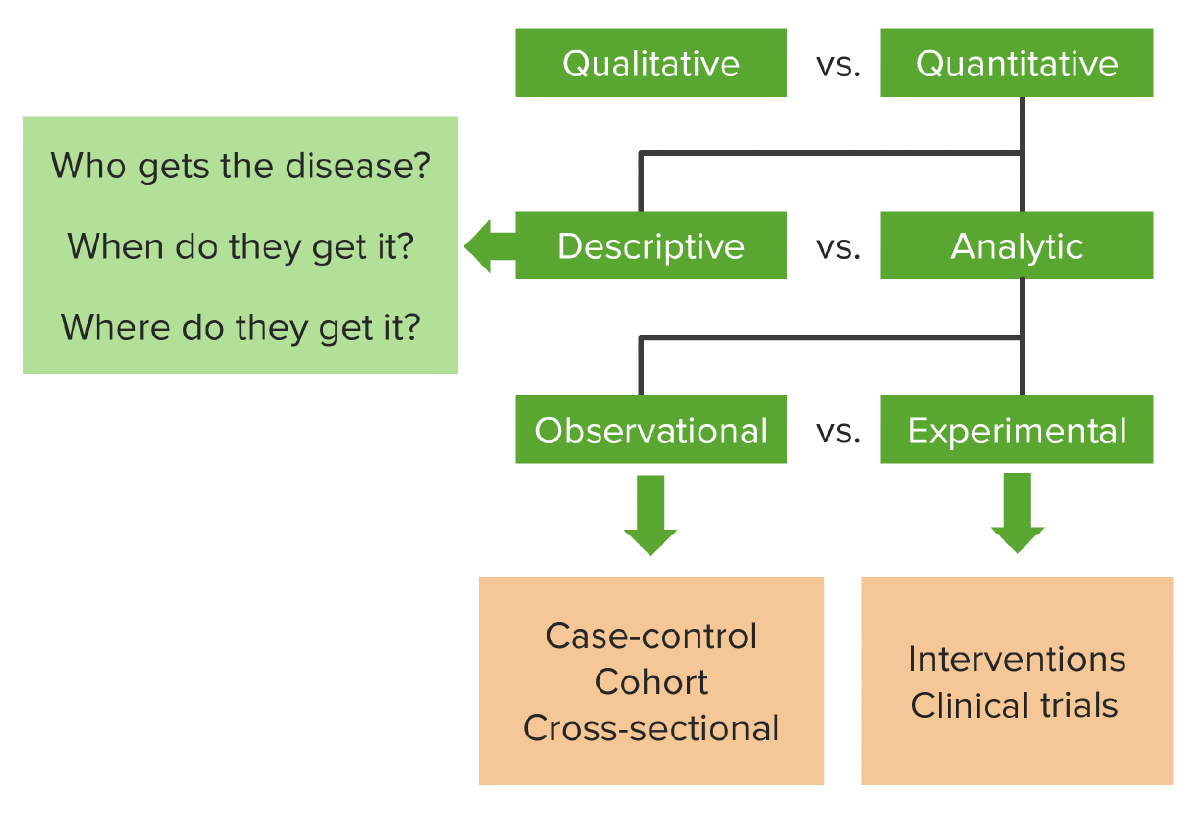Playlist
Show Playlist
Hide Playlist
Epidemiologic Terminology
-
Slides 01 OverviewHistory Epidemiology.pdf
-
Reference List Epidemiology and Biostatistics.pdf
-
Download Lecture Overview
00:01 So let's now change gears a bit and talk about terminology. It's important that we get our words straight before we can talk more deeply about epidemiology and how to use it. When we're in mathematics versus clinical research, versus laboratory research, versus epidemiology, some common concepts often have different names. So we have clinical research and mathematical relationships, and in this domain we have independent and dependent variables. So an independent variable is free to be whatever it wants, but it determines the value of dependent variables. In epidemiologic research, a variable that predicts an outcome is an exposure. You're exposed to something which may lead to an outcome. You can be exposed to a contaminant, a pollutant, may be something in your food and the outcome could be a disease, a cancer or some other kind of behavior. So again traditionally we have independent variables that lead to dependent variables, in epidemiology these are exposures leading to outcomes. The example that I'm fond of making all the time is that smoking is an independent variable, you are free, you are independent to smoke if you want to or not smoke if you want to, but the smoking causes a certain outcome and that outcome could be lung cancer. Now an exposure that increases or decreases the likelihood for developing a certain outcome or disorder conditions or diseases, we call that a risk factor. Now go back to John Snow again, John Snow discovered that water from this pumping station was likely associated with cholera. 01:41 He didn't know how it worked, he didn't understand the biology, the mechanism by which water caused the disease, he just knew that this water was a risk factor for getting the disease and this really is one of the foundations for public health epidemiology. We can measure statistically the relationship between risk factors and outcomes and thus we can control the risk factors and maybe then control the outcomes without knowing the relationship, without knowing the mechanism of how that risk factor caused the outcome, or in fact if it was indeed causal. For example, smoking causes lung cancer, we know this because there is a strong statistical association between whether or not you smoke and whether or not you are likely to get lung cancer. You don't have to know the science or the biology or the mechanism of how the smoking causes lung cancer, it helps, it's useful, we recommend that we figure this out, we don't have to know in order to have a public health intervention epidemiologically. I can control the risk factor and thus reduce the likelihood of the outcome.
About the Lecture
The lecture Epidemiologic Terminology by Raywat Deonandan, PhD is from the course Epidemiology and Biostatistics: Introduction.
Included Quiz Questions
A study is developed to examine the effect of chlorine exposure, before age 5, on future height in America. What is the independent variable in this study?
- Chlorine exposure
- Future height
- America
- Age
- US babies
Which of the following statements about risk factors is INCORRECT?
- The mechanism by which the risk factor causes an outcome must be known.
- The risk factor is the independent variable of clinical epidemiological studies.
- A strong association between risk factors and outcomes can suggest but does not confirm causality.
- Smoking is considered a risk factor for the future development of lung cancer.
- Risk factors are exposures that may increase or decrease the likelihood of certain conditions.
Customer reviews
5,0 of 5 stars
| 5 Stars |
|
2 |
| 4 Stars |
|
0 |
| 3 Stars |
|
0 |
| 2 Stars |
|
0 |
| 1 Star |
|
0 |
It is very easy to understand and keep up with the concepts
Question section does really capture the essentials of what was taught




